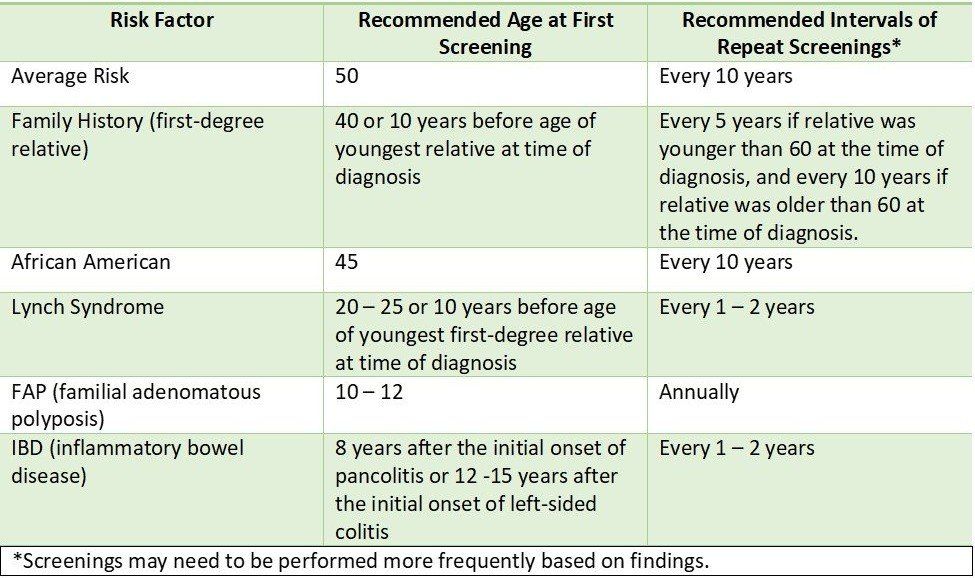Panama City Colon Cancer Screening: Is it Time?
If you know anything about colonoscopies it is likely the fact that you should have one after turning 50, but even this assumption is not always accurate. While it is true that 50 is the age at which most patients should undergo their first colonoscopy, it is far from the only factor determining when screenings should begin. In fact, there are many elements that must be considered in order to decide not only when a patient will need their first colonoscopy but how often the test will need to be repeated. For those with certain risk factors, screenings could begin as many as 10 years or more before the standard recommended age. So, how do you know when you should get your first colonoscopy? Your physician can (and should) fill you in, but here are some of the details to be considered:
Colonoscopy Timing for Patients with a Family History Colon Cancer
Patients who have one or more first-degree family members (parents or siblings) who have been diagnosed with colon cancer or polyps are more likely to develop the disease themselves. Furthermore, the age at which the relative was diagnosed also plays an important role. In general, it is recommended that patients receive their first colonoscopy by the age of 40 or ten years before the age at which their relative was diagnosed, whichever comes first.
Colonoscopy Timing for African American Patients
While the reasons are not entirely clear, colon cancer affects African American patients at a disproportionately higher rate than other races. For this reason, many physicians recommend that African American patients begin screenings at the age of 45.
Colonoscopy Timing for Patients with a Hereditary Condition
Some hereditary conditions can impact a patient’s risk for developing colon cancer. Among the most common are familial adenomatous polyposis (FAP) and Lynch Syndrome. For patients with these conditions, screening should begin far earlier and may begin as young as 10 years old in the case of FAP. However, there are many variables within such conditions that mean screening recommendations are largely determined on a case-by-case basis.
How Often are Colonoscopies Needed?
How frequently screenings should occur will depend on the results of the initial colonoscopy, as well the specific risk factor at play. Refer to the table below for a reference of screening ages and intervals based on the risks above, as well as additional factors such as the presence of IBD.
Colonoscopy Recommendations Based on Risk Factor

While the 50 year mark is a good standard for most patients to have their first colonoscopy, there are circumstances when earlier testing is not only recommended, but vital to the early detection and prevention of colon cancer. If you have reached the age when a colonoscopy is recommended based on your own risk factors, contactDigestive Diseases Center, and request a consultation with one of our gastroenterology physicians.
CONTACT
850-763-5409
ADDRESSES
4 LOCATIONS
204 E 19th Street, B, Panama City
12216 Panama City Beach Pkwy, D, Panama City Beach
4295 3rd Ave, Marianna
101 Good Morning St., 109B, Port St. Joe
Subscribe to our newsletter:
subscribe to our newsletter
We will get back to you as soon as possible.
Please try again later.



